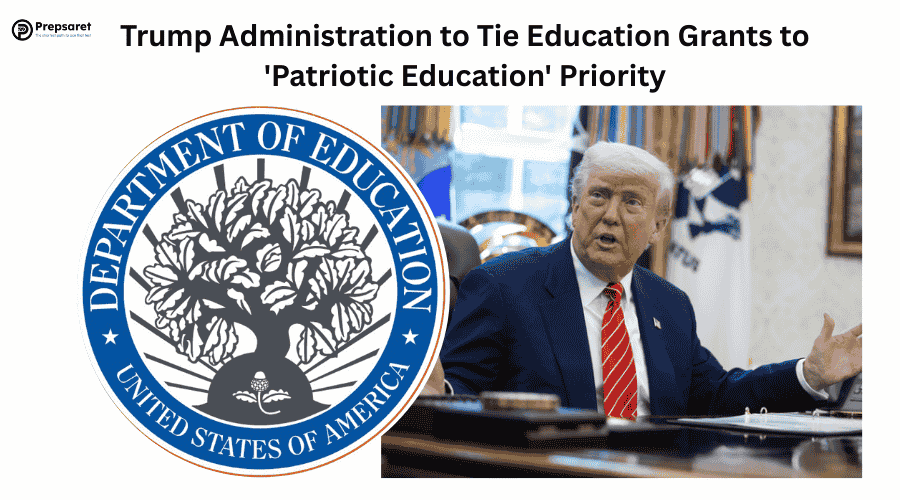Key Points:
- The U.S. Department of Education will prioritize discretionary grants for programs focused on “patriotic education.”
- Officials say the initiative promotes civic knowledge and inspires national pride, while critics argue it risks minimizing darker chapters of U.S. history.
- The move follows broader Trump administration efforts to influence cultural and educational institutions.
Administration Pushes ‘Patriotic Education’
The Trump administration announced this week that federal education grants will increasingly favor programs promoting “patriotic education.” The Department of Education said the initiative, unveiled by Secretary Linda McMahon, is designed to strengthen civic understanding and highlight the nation’s founding principles as the country approaches the 250th anniversary of the Declaration of Independence in 2026.
“Patriotic education presents American history in a way that is accurate, honest, and inspiring,” the Department stated, stressing that students should learn both the nation’s ideals and the struggles required to extend them to all citizens. McMahon added that teaching young people about constitutional principles, civil rights progress, and America’s global role is essential to fostering informed patriotism and civic responsibility.
The proposed rule has been published in the Federal Register and will remain open for a 30-day public comment period. Once finalized, the new priority will shape future discretionary grant competitions, alongside existing initiatives on literacy, school choice, state authority, and artificial intelligence in education.
Critics Warn of Narrow Historical Framing
While officials frame the program as a unifying effort, critics contend that it risks curtailing free speech and overlooking critical parts of U.S. history. Civil rights advocates argue that attempts to reframe curricula, revise museum exhibits, and review interpretive signage at national parks amount to minimizing subjects like slavery and systemic inequality.
The move builds on President Donald Trump’s broader push to align cultural institutions with his agenda. In recent months, he has threatened to cut federal funding to universities over protests, diversity and equity initiatives, and climate programs. He has also accused schools and museums of spreading what he calls “anti-American ideology.”
The administration has already signaled its willingness to pressure prominent institutions. Trump suggested he could influence the Smithsonian Institution, just as he has targeted higher education, to emphasize a more favorable narrative of U.S. history.
Supporters argue that the patriotic education priority highlights progress made by civil rights leaders and underscores the resilience of democratic values. However, opponents warn it may come at the cost of presenting a complete and critical account of the nation’s past.
The debate over patriotic education reflects deeper tensions in U.S. politics: whether national pride should be emphasized over critical reflection and how government funding can shape public understanding of history. As the Department of Education moves forward with this priority, educators and policymakers remain divided on whether it will unify or further polarize American classrooms.

